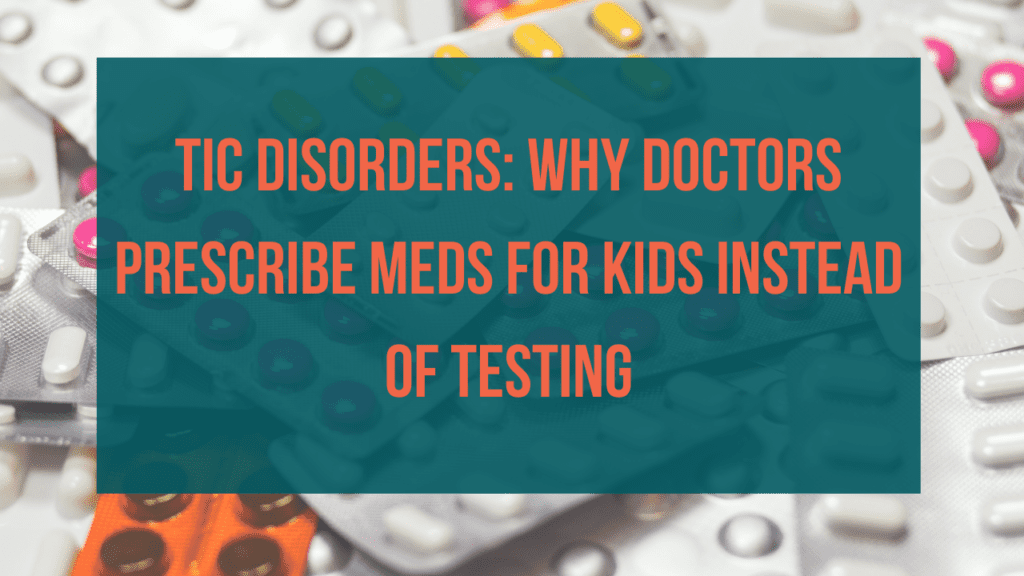Parents, if you’re like me, then at some point in the past 12 months you’ve had to ask your doctor a barrage of questions about what’s wrong with your child and how they can get better. Especially when it comes to tics, ADHD, anxiety, and OCD.
Have you ever left a doctor’s appointment feeling more confused than before?
I know I have. And it isn’t because my child has an obscure ailment or rare disease-it is because of their answer! They say “We don’t know” “Just ignore it, they will grow out of it” so often that it’s become commonplace. So why do we take our children to see them instead of specialists? One reason is that some parents feel they are getting advice from someone who knows more than them on the subject (although this can be one-sided). Another reason is convenience: many people go to the doctor because it’s easy and insurance pays for it. Yet, we almost always leave with zero answers.
It is estimated that at least 25% of kids in the US are on at least one prescription medication and about 10% of kids are on more than one prescription med.
Why are our kids given a pill and lab testing is never even considered? In fact, our allergist flat out refused to order certain lab tests for my son because his symptoms didn’t “fit the mold”. He then handed us six prescriptions and sent us on our way!
Here are three reasons why your doc busts out the prescription pad.
Prescribing medications is how physicians are trained.
Medical schools do not provide nutrition training or lab testing above the standard blood test. They do however spend hours learning about a pill for every ill and what prescription best fits your child’s symptoms.
pssst…a prescription is just like a band-aid and only covers up symptoms.
Cincinnati children’s hospital says that medications prescribed for tic disorders rarely reduce tics by more than 50 %.
And the 2 main medications used for tic disorders are for high blood pressure.
When meds are prescribed off label it means there was no specific study linking that particular disease/illness to the drug they are using. The FDA calls it an unapproved use for an approved drug
It’s profitable
Doctors are taught to prescribe medications and not functional lab testing because it is easier, faster (sometimes), less invasive, and often more profitable for the physician’s office.
Insurance companies have a lot of power
Health insurance companies have a lot of power to dictate doctor’s actions. They can tell physicians which tests they will cover and how much the reimbursements are for these services. This means that if your doctor is willing or forced by their employer to use an in-office lab, then prescriptions might shape our health care system.
Lots of advertisements
Drug advertisements on TV create a population eager to accept pill solutions for every health problem. Patients show up with a preconceived notion about the magical properties of the pills they see on TV. It makes your doctor’s job easy when you show up with a list of what you want. The US is one of the only countries that allow direct advertising of prescription meds to the public.
Functional lab testing is key
Kids ( like adults in the US) are often prescribed drugs for chronic illnesses. The problem is that functional lab testing has been proven more effective than prescription meds in the long term. Functional lab tests can identify what might be causing your symptoms and suggest a solution with targeted interventions such as diet changes or lifestyle modifications. In this way, you’ll get to know what’s happening with your child’s health and take control of it.
**This blog post is not an endorsement for kids to stop taking their meds, but a reminder that there are other options out there.
If you are ready to get your hands on functional lab testing grab a FREE deep dive session now!

